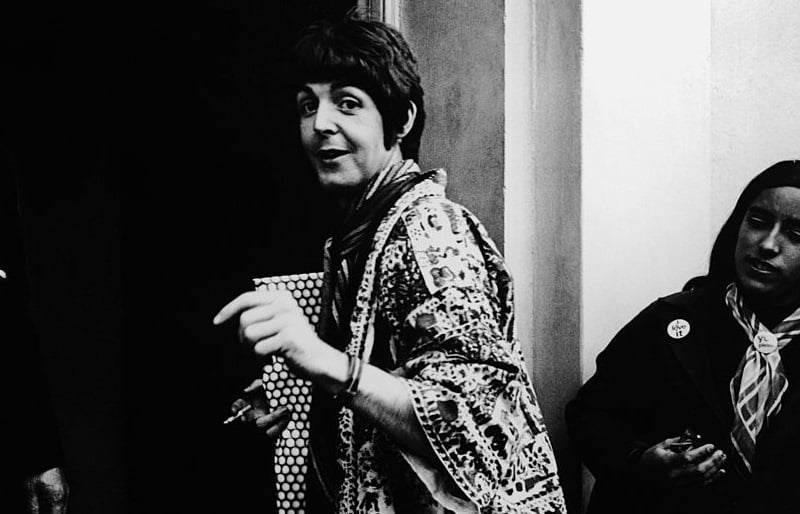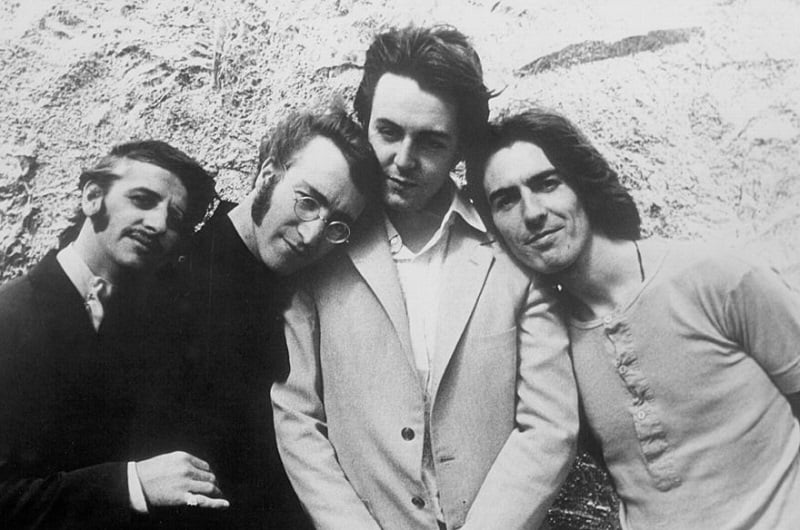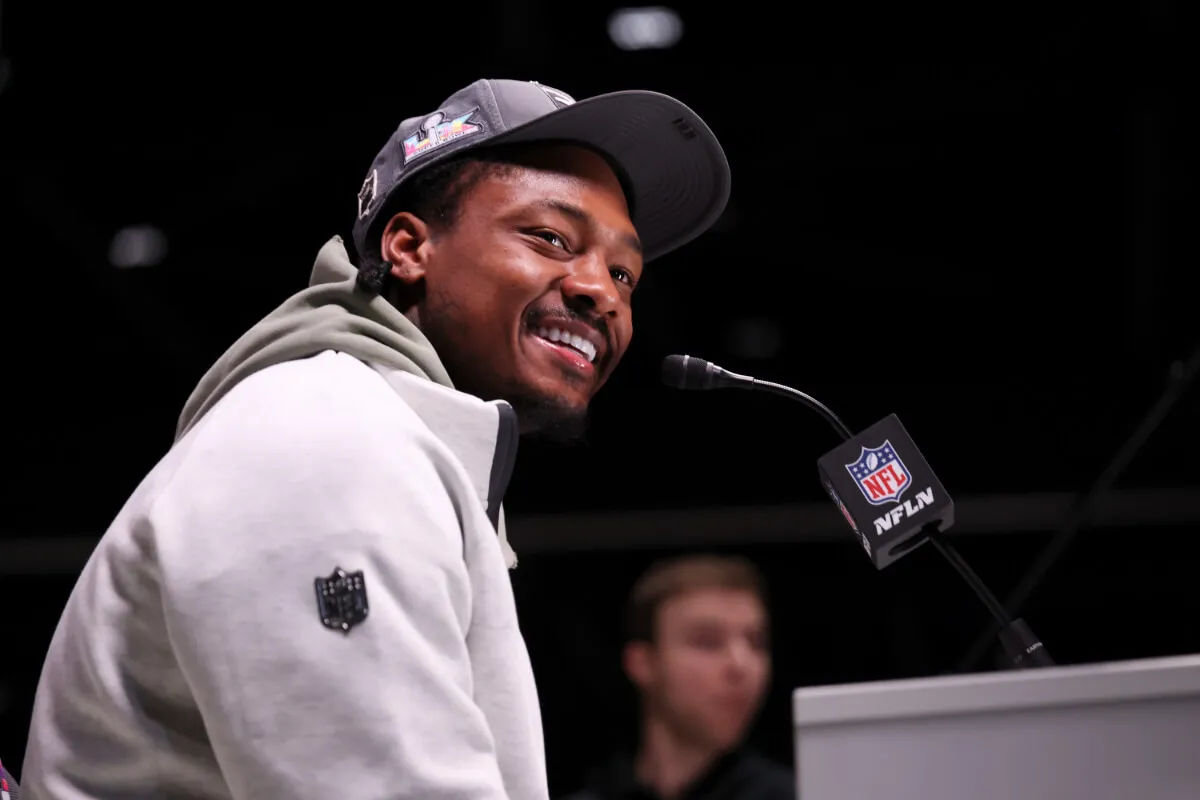Why The Beatles Got Accused of Being Communist Sympathizers
Even The Beatles had their brush with cancel culture. When John Lennon wondered whether “Christianity or rock ‘n’ roll will go first” in 1966, an Alabama DJ decided it was time to “ban The Beatles” for their blasphemous comments.
John’s line about the Fab Four being “more popular than Jesus” made banning the group a no-brainer for the DJ’s conservative Christian audience. And the album burning/destruction promptly began, along with a ban of Beatles music at dozens of U.S. radio stations.
Though a press conference by John calmed things a bit, the hostility (and death threats) were still coming when the band toured America that summer. In fact, after dealing with protests and warnings from the Ku Klux Klan, The Beatles decided they’d finished with touring for good in ’66.
So even before Paul McCartney admitted to taking LSD and The Beatles started spending their time meditating, the conservative John Birch Society had taken notice. When the band kicked off The White Album (1968) with “Back in the U.S.S.R.,” some even accused the band of communist sympathies.
‘Back in the USSR’ raised red flags among conservative Americans

Beatles fans probably know “Back in the U.S.S.R.” as a rollicking good time. Paul wrote the song while the band was in India meditating with a group that included Mia Farrow and the Beach Boys’ Mike Love. Paul conceived of it as a parody of Chuck Berry’s “Back in the USA” with a Beach Boys twist.
So instead of Berry’s joy at returning from the army (seeing hamburgers sizzling in diners and so on), Paul wrote as a spy who’d returned to the Soviet Union after a prolonged absence. Hence the “Moscow girls” who make him “scream and shout” and want to “disconnect the phone.”
It would be tough to think Paul was serious when he sang, “Come and keep your comrade warm” and such. But there were folks who did. David Noebel, author of such gems as The Marxist Minstrels: A Handbook on Communist Subversion of Music, wasn’t laughing along with The Beatles.
Following his 1965 pamphlet Communism, Hypnotism, and The Beatles, Noebel roared back with another tract following the White Album release. “John Lennon and The Beatles were an integral part of the revolutionary milieu and they received high marks from the Communist press,” he wrote (via A Hard Day’s Write).
Critics were ‘speechless’ after they heard Paul’s ‘USSR’ lyrics

Following his baseless claim that the communist press loved The Beatles, Noebel spoke of the impact on freedom-loving Americans. “One line from ‘Back in the U.S.S.R.’ left anti-Communists speechless: ‘You don’t know how lucky you are, boy — Back in the U.S.S.R.'”
Most Americans took the appropriate approach of ignoring Noebel. And the millions who bought The White Album probably took “Back in the U.S.R.” for what it was: a rocking song with a few good jokes thrown in. (The record was another huge hit for The Beatles in the U.S.)
The Beatles weren’t the only targets of Noebel and the John Birch Society, of course. Five years earlier, Bob Dylan did a classic send-up of the society in “Talking John Birch Paranoid Blues.”
In that track, the narrator searches all over his apartment for communists (“reds”). After investigating his mailman and inspecting his television set, Dylan is alarmed to find … red stripes on the American flag. “Ol’ Betsy Ross,” he quips.
Also see: How Paul McCartney Responded When Keith Moon Asked to Join The Beatles


